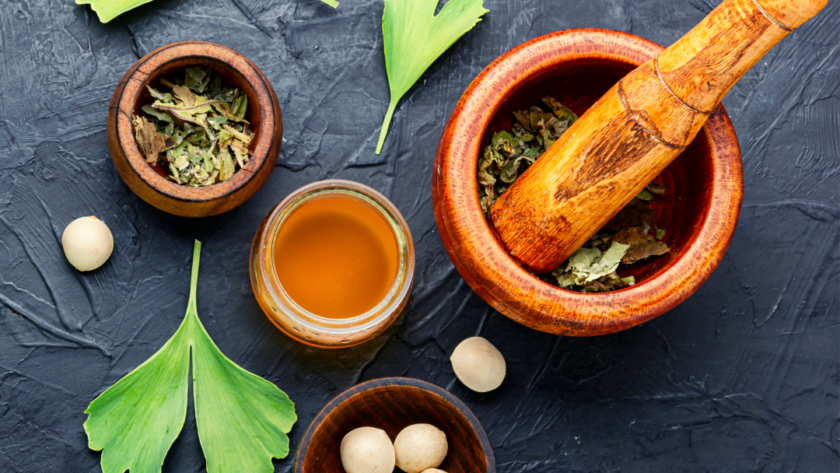Ginkgo Biloba: Tracing Its Roots and Traditional Uses. Among the vast variety of medicinal plants known to humankind, Ginkgo Biloba holds a distinctive place due to its rich history, multifaceted uses, and enduring longevity. This ‘living fossil’, as it is often called, has roots tracing back over 270 million years, and its resilience and therapeutic properties are just as enduring as its timeline suggests. In this comprehensive exploration, we will unfold the traditional uses of Ginkgo Biloba, covering its journey from ancient practices to modern adaptations.
The Ginkgo Tree: A ‘Living Fossil’
To understand the traditional uses of Ginkgo Biloba, it is vital first to understand the tree itself. Native to China, this magnificent tree is a unique species in the plant kingdom, being the only surviving member of the Ginkgophyta division. This hardy tree can grow up to 120 feet high, survive harsh conditions, and live for a millennium, adding to its exceptional reputation.
Its leaves are fan-shaped, and its seeds are housed in plum-like shells that are infamous for their pungent smell when overripe. Both the leaves and seeds have played pivotal roles in traditional medicine, offering a range of health benefits that have been cherished for centuries.
The Heart of Ginkgo Biloba: Traditional Chinese Medicine
Ginkgo Biloba’s journey as a medicinal plant primarily begins in ancient China, where its seeds and leaves were incorporated into traditional Chinese medicine (TCM) to address a variety of health issues.
1. Enhancing Cognitive Function and Memory
One of the primary uses of Ginkgo Biloba in TCM was to improve memory and cognitive function. The practitioners believed that the leaves, when brewed into a tea or consumed in other forms, could enhance mental clarity, improve memory, and act as a mental rejuvenator, especially for the elderly.
2. Combating Respiratory Ailments
Ginkgo seeds, known as ‘bai guo’ in Chinese, have been traditionally used to treat respiratory ailments. They were considered an effective remedy for managing asthma symptoms and alleviating chronic coughs by clearing the lungs and reducing inflammation.
3. Alleviating Hearing Disorders
Ginkgo Biloba also found use in the management of hearing problems. Traditional Chinese practitioners believed that Ginkgo extracts could significantly reduce tinnitus symptoms, characterized by a persistent ringing or buzzing in the ears.
Ginkgo Biloba beyond China: Japanese and Korean Traditional Medicine
Ginkgo Biloba’s reputation as a therapeutic plant extended beyond Chinese borders, finding its way into the traditional medicine systems of Japan and Korea. Similar to TCM, these cultures used Ginkgo Biloba to manage age-related symptoms, primarily memory loss, and to improve blood circulation. The plant’s antioxidants were believed to stimulate blood flow and ensure optimum oxygen supply to vital organs, thereby promoting overall health and vitality.
Embracing Ginkgo Biloba in Western Herbal Medicine
As the world grew more interconnected, the secrets of Ginkgo Biloba began to trickle into Western herbal medicine. Today, Ginkgo Biloba is widely recognized in the West for its potential health benefits. Extracts of the plant are used in supplements aimed at enhancing cognitive function, supporting eye health, and combating anxiety.
Modern science has started to verify the benefits that our ancestors discovered centuries ago. Studies suggest that Ginkgo Biloba may indeed help improve memory and cognitive function, reduce anxiety, and even support eye health by improving blood flow.
Celebrating Ginkgo Biloba’s Time-Tested Legacy
The journey of Ginkgo Biloba, from ancient healing practices to modern wellness routines, is a testament to its enduring value and adaptability. Its rich legacy in traditional medicine across cultures and ages underscores the wisdom of our ancestors and their insightful utilization of natural resources.
However, while we marvel at the traditional uses of Ginkgo Biloba and their contemporary validations, it is essential to remember that individual health needs are unique. Incorporating any new supplement or health regimen should always be done in consultation with healthcare professionals to ensure it aligns with one’s specific health requirements.
The story of Ginkgo Biloba is a compelling reminder of the intricate connection between us and the natural world. As we learn more about this ‘living fossil’, we can continue to explore its potential, bridging the gap between ancient wisdom and modern science, and nurturing our health in the process.



